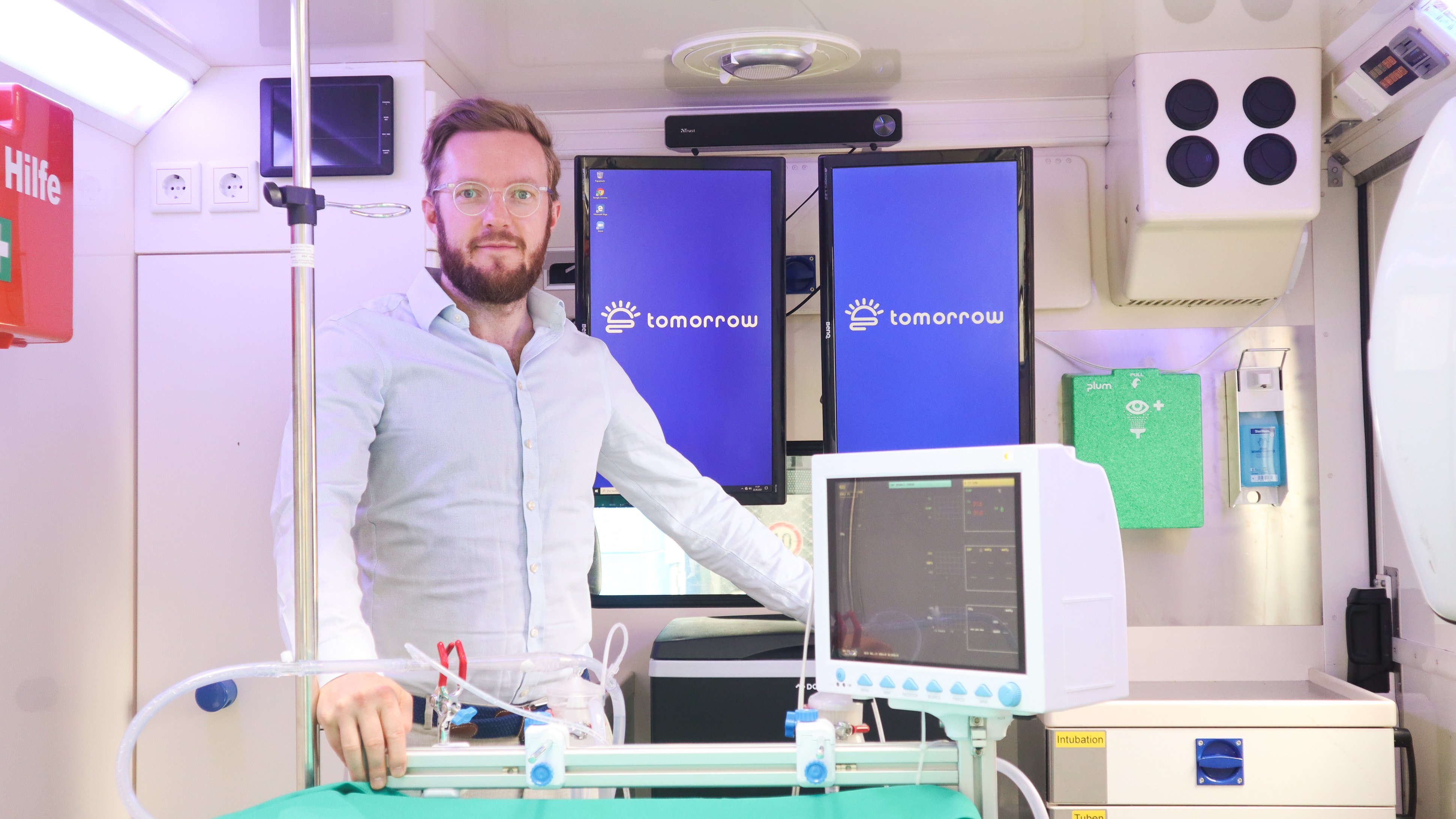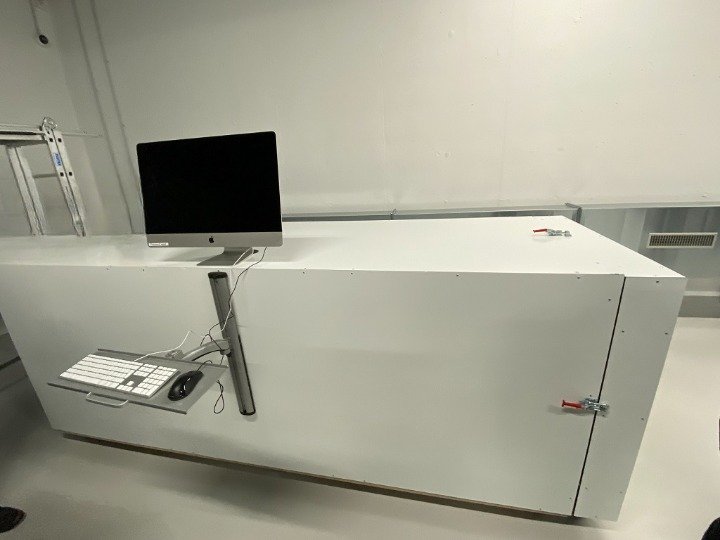Think of human longevity startups, and you might think of companies focused on gene therapy, personalised medicine, gerontology, or treatment for conditions like cancer.
But a Berlin startup wants to extend your life by bringing you back from the dead. It's a risky proposition, placing you in a state of suspended animation in anticipation of a scientific breakthrough that may never eventuate.
Tomorrow Biostasis is a company facing scientific challenges and turning standard startup guidebook on its head. I spoke with the co-founder and CEO Dr Emil Kendziorra, to find out more.
What is cryopreservation?
Cryopreservation is a medical procedure also known as biostasis or cryonics. Upon death, your body (or brain) is preserved in a specialist storage facility in a state of stasis until medical technology advances in future decades to not only treat the original cause of your death but revive you to enjoy a second or extended life.
Legally, cryopreservation is regarded as a scientific body donation, making it possible in most European countries. And donating your body to science is so popular that universities restrict donations and charge a fee.
Tomorrow Biostasis has cryopreserved "about ten people" for training purposes.
You need a compelling founder story

Dr Emil Kendziorra started with a medicine degree and a career in cancer research. He shared, "unfortunately, academic research is very, very slow. So I don't think that fits well with my personality."
He went on to launch three companies (two acquired), then decided to turn his hand to longevity tech, founding Europe's first cryogenics – complimenting US companies like The Alcor Life Extension Foundation and The Cryonics Institute.
You can't move fast and break things

Predictably, Tomorrow Biostasis focuses on the long term. The company provides medical standby (for when someone dies), and recruits and trains medical standby teams for when someone dies. It also handles contracts, transportation, customer communications, and community building. (My office is on the same street as their HQ, and I walk past the standby ambulance every day).
Full independence is not in your wheelhouse
Unlike conventional startups, Tomorrow Biostasis works with two interconnected organisations:
The Tomorrow Patient Foundation (TBF) is a Swiss non-profit private benefit organisation that is the legal guardian of the cryopreserved patient.
As well as being a research body, the European Biostasis Foundation provides the facility for long-term care for patients in Rafz, Switzerland. Upon arrival, patients are cooled to -196 degrees celsius and placed in dewars filled with liquid nitrogen to maintain cryopreservation.

(You can even visit the facility or have your family visit you in storage).
Recruitment is hard
Tomorrow Bio is "not for people who just want to do something cool." Kendziorra shared, "ideally, we're looking for people who say, I only want to work at a longevity company." Furthermore, your time at Tomorrow Biostasis may deter future employers.
Your customers might not be who you think
It's easy to imagine cryogenics as people near the end of their life, but of the 100s of people on the waiting list to be cryopreserved, most are young.
"Our average age is 36."
Kendziorra attributes this to the fact that younger people are less likely to have grown up with technology and are less likely to be religious. While the list encompasses a diverse population from various counties and socio-economic backgrounds, predictably, people in tech feature heavily.
A startup not easy to categorise
How do you find like-minded founders when you don't fit conventional startup categories? Currently, no competitors exist in Europe, But there is scope to collaborate in the future with startups focused on wills, advanced directives, medical transport, and organ donation.
It's tough to raise money
Betting on something that won't eventuate for decades to come – if ever – is not easy to summarise in a persuasive pitch deck.
But some investors have even signed up for cryopreservation, with others happy to invest in the future possibility.
Furthermore, the TPF puts long-term storage funds into very low-risk investments with an annual return of 1-2% above inflation to cover the running costs of preservation.
Your goal is not to make a profit
According to Kendziorra, the goal of Tomorrow Biostasis is not to make money.
Body preservation costs, on average €200,000. Customers pay a membership fee of €25 per month from the time they sign up until cryopreservation. The standby and storage funds are only paid once you need to be cryopreserved. Most people choose to cover costs using their life insurance.
Alternatively, you can preserve your brain for €60,000. The lower cost makes cryopreservation more accessible. It also saves cold room space.
Kendziorra stresses that "we don't get more money if it's a whole body over a brain. In fact, none of the money goes to us".
Instead, he explained that "if we received revenue, we would be incentivised to do a worse job to have more profit. So basically, the money goes to the foundation, and then the foundation pays us."
Your startup aims to exist for centuries and can never be sold
A startup like Tomorrow Bio is in it for the long haul. Kendziorra revealed:
"The company will never be sold. So all our investors need to be okay with this. They get dividends but not sales profits. It's a long-term mission."
Betting on an unproven proposition
We all know how well "fake it till you make it" went for Theranos.
Currently, there is no way to revive cryopreserved people. Research demonstrates a scattering of possibilities rather than a sum of all parts — preserving cells, tissues, and organs is possible. In 2016, scientists revived a rabbit brain from cryopreservation to near-perfect condition. Certain model organisms come back from cryogenic temperatures with their memories intact.
"If you are cremated, you have zero chance of revival, but if you are cryopreserved, the chance is more than zero."
Many questions cannot be answered
It's not every day I interview a startup, discussing topics like what it would be like to come back as just a brain without a body.
Kendziorra prefers whole body preservation but concedes that in the future, it might be possible to 3D print a body based on your DNA or return as a technical cyborg or "some kind of matrix that's not a body, it's more like your consciousness in a computer."
There's also the issue of when you want to come back. Customers can make a wish list of such preferences but the sooner the revival, the less advanced the technology, which, even if successful, may result in impaired memories. Come back in 100 years, and you confront a world you don't want to live in.
And how do you fund a second life? A complimentary not-for-profit organisation could seek and invest donations, the dividends given to people to start a new life once revived. Universal Basic Income may even become a reality — or not.
Then there's the matter of ethics. Medical scientists have to treat all people equally. But who should be preserved and revived — Elon Musk or a mass murderer, for example?
These questions are just the tip of the iceberg when you're developing technology to do things that currently aren't medically possible.
Kendziorra doesn't pretend to have all the answers, but he believes cryopreservation will become a reality before people live healthy extended lifespans.
And he concedes:
"I'm happy to be proven wrong. If, in 20 years, longevity becomes an option, that's fine. But right now, research into cryopreservation will have the most impact on living a long life."
In the interim, Kendziorra and his colleagues will advocate for people to make an informed choice, and to put their life's mission into making their goal a reality.
Lead image: Tomorrow Biostasis.



Would you like to write the first comment?
Login to post comments